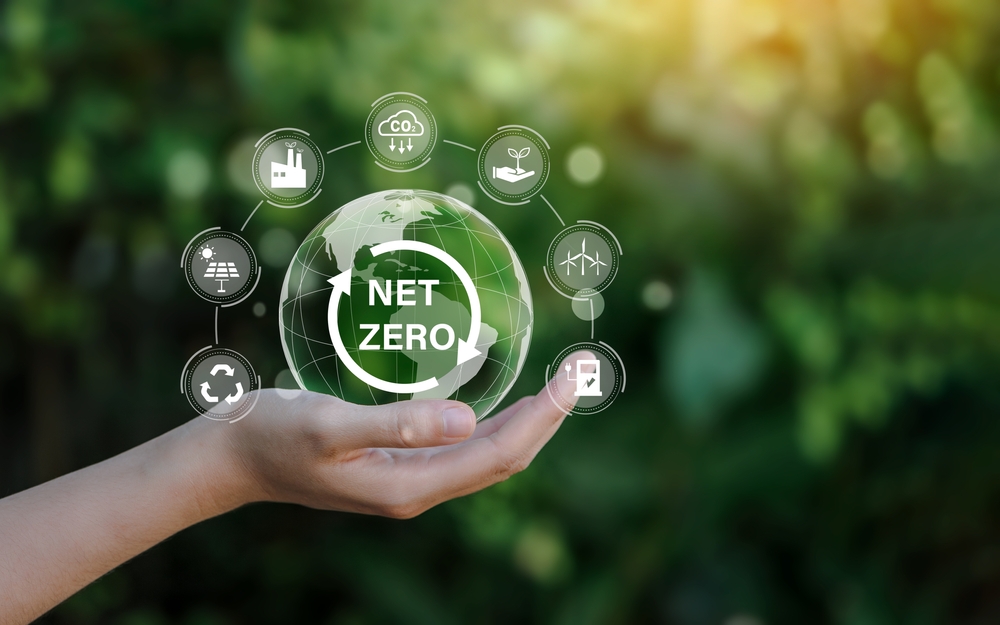As Dubai readies to host the COP28 international climate conference in November next year, the world’s building design industry will gather in the Emirate in January to examine the role the sector can play in smoothing the GCC’s path to net zero carbon emission goals.
The United Arab Emirates and Oman have committed to being net zero by 2050, while Saudi Arabia, Kuwait, and Bahrain have net zero targets for 2060, and Qatar, though not committing to a goal timeline, says its comprehensive climate action plan will help it reach net-zero carbon emissions by 2050.
Yet with the GCC construction sector on a strong growth trajectory – forecasts suggest it will outperform the wider economy in the short to medium term – and with the wider built environment accounting for around 40% of the world’s global greenhouse gas emissions, there’s increasing demand for a major sector overhaul. In a new report 6WResearch the intelligent building design sector is being championed as a solution.
Such is the clamour for change that trade show organiser Messe Frankfurt Middle East has launched an entirely new industry event into the existing Light Middle East to push the case for Intelligent Buildings. Now running as Light Middle East | Intelligent Building Middle East the new trade show offers knowledge-sharing forum for industry professionals to explore the advanced products and technology solutions needed to drive a smart, safe, secure, and sustainable future.
When the doors open on the event, which will run at the Dubai World Trade Centre from January 17-19, it’s expected to welcome an impressive list of local and international architects, developers, construction companies, governments, technology firms, and engineering professionals looking to adapt and collaborate to ease their change pressures.
“Buildings are now emphatically in the vanguard of the battle against climate change with 136 countries now citing greater building efficiency or decarbonization in their climate goals,” explained Dishan Isaac, Show Director at Light Middle East | Intelligent Building Middle East.
“There’s widespread recognition of the need for rapid innovation, particularly as the World Economic Forum has forecast that global building floorspace will double by 2060. With building growth forecasts and net zero targets seeming at odds, there was an urgent need for a dedicated forum to address the dilemma.
“There is increasing acceptance that intelligent buildings, which integrate next gen technologies, will be key to reducing energy usage and CO2 emissions while helping to deliver more sustainable environments.”
Sustainable Future is one of the three themed pillars of IBME, with the other two being Innovative Design and Seamless Integration, which feed into the overall transformational agenda. The event will also feature the Smart Building Summit aimed at spurring the creation of a better, more agile and adaptive smarter construction eco-system. The speaker line-up is impressive, with leading voices from across the construction value chain throwing light on the latest research and innovations driving improvements in productivity, quality, reliability, cost-savings, waste-reduction, and energy efficiency.
The multi-national speaker line-up features public and private sector decision makers. The platform includes Eng. Nawal Alhanaee, Director of the Future Energy Department at the UAE Ministry of Energy & Infrastructure; Abdullatif Albitawi, Director of the Emirates Green Building Council; Dr. Jacques Khouri, Senior Technology Advisor on Industry 4.0 at the UAE Ministry of Energy & Infrastructure.
Representatives from local and international institutes and developers are also set to take part, including Mark Jamieson, Council Member – MENA of the Institution of Civil Engineers; Richard Dib, Smart City Advisor to Saudi Arabia’s Royal Commission of Al Aula; John Shenton, Chair of the Chartered Institute of Building’s Dubai Hub and Omar Barakat, Associate Director at Saudi Arabia’s Red Sea Development Company.
The Summit’s discussions will focus on the new build mega projects taking place around the region but also shine a light on the role of retrofit in meeting sustainability goals. “Owners of older buildings are turning to retrofitting to make them more sustainable and energy efficient indeed more than half of built environment experts see this drive towards energy efficiency as the most important outcome of retrofitting so it’s vital to include it in the knowledge platform mix,” commented Isaac.
In an effort to ensure the entire building spectrum is covered over the three-day January show period, Messe Frankfurt Middle East has timed
Light Middle East | Intelligent Building Middle East to co-locate alongside the Intersec safety and security event to create MENA’s gathering for the entire building eco-system. Together the show trio will span 13 halls with 60,000 square metres of display space and house well over 1,000 exhibitors.
The trio combine to produce a powerhouse of knowledge sharing with Light Middle East | Intelligent Building Middle East featuring the Light Talk series of five key sessions and panel discussions on the lighting design process, from end user, developer, architect, consultant and designer to the manufacturer and supplier.
“The Light Talks aims are to rediscover where the industry is heading, address key challenges and learn from experts who have adapted to the new, sustainably conscious world,” added Isaac.
The show trio will be keenly monitored by building industry experts who anticipate some major policy input emerging from the events.
“Coming at the start of an important year for the UAE and the region on the global climate change stage, these shows will lay down issues, challenges and possible solutions which will likely feed into the COP 28 discussions following just ten months later,” he added.




